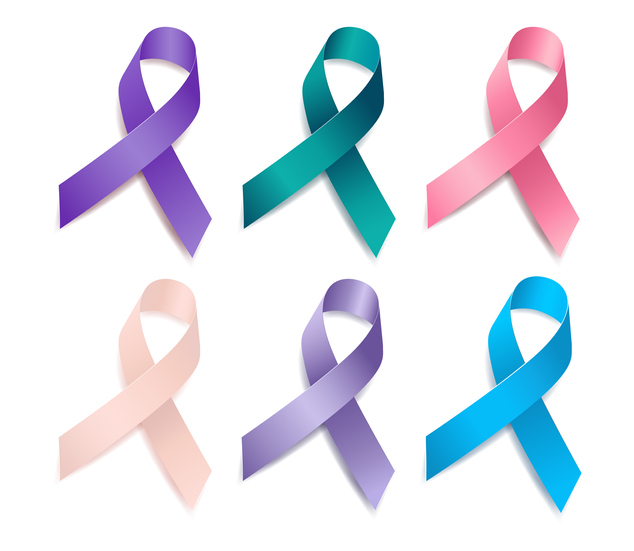Your Guide to Uterine Cancer
Uterine cancer is the 4th most common cancer in the UK, and the risk increases with age, so it pays to know the signs to look for.

There are around 9,700 new uterine (womb) cancer cases in the UK every year, that’s 27 every day, so you need to be aware of the signs.
It accounts for 5% of all new cancer cases in women in the UK (2016-2018) and more than a quarter of all new cases are diagnosed in women aged 75 and over.
What is it?
It’s a cancerous tumour in your uterus, the pear-shaped organ also known as your womb. Most cases happen in the lining of the uterus (endometrium), but you can get tumours in the muscles there, too.
If you’re past menopause, your chances are higher and your genes play a role in how likely you are to have uterine cancer.
For example, Lynch syndrome is a genetic disorder that makes you more likely to get certain cancers. Women with it have much higher odds of getting uterine cancer.
But having a problem gene doesn’t mean you’ll get it but means you and your doctor should watch for signs so you can treat it early if you do.
Most women who get uterine cancer don’t have a known genetic cause.
What to watch out for
If you haven’t been through menopause and you have bleeding or spotting — a red, pink, or white discharge — between periods, see your doctor. The same is true if you are post menopause and have these symptoms at any time.
Bleeding can be a sign of uterine cancer, but it’s also a symptom of other medical problems. Any bleeding after menopause isn’t normal, so it definitely needs to be checked out.
Always let your doctor know if you have:
- Pain in your pelvis
- Lost weight without trying
- Pain during sex
- A hard time peeing or it hurts to pee
It’s best if you find uterine cancer before it grows or spreads, so don’t put off your checkups or ignore symptoms.
Diagnosis and treatment
You may have an ultrasound, but usually a biopsy is the best way to know if it’s cancer. Your doctor will take a small amount of tissue from the endometrium and look for cancer cells under a microscope.
If you have uterine cancer, your doctor will start with one of the following to see if it has spread to nearby areas, like your cervix, or to your lymph nodes (tiny glands in your neck, armpits, groin, and other parts of your body):
- Ultrasound
- MRI scan
- CT scan
Your doctor probably will recommend that your uterus be taken out with a hysterectomy. Your ovaries and fallopian tubes will probably be removed, too and if your cancer has spread, your doctor also may take out nearby lymph nodes.
Radiation is also recommended after surgery to kill any cancer cells that may still be there.
Hormone drug therapy is usually offered post surgery as oestrogen and other hormones in your body can make uterine cancer grow or spread faster.
Drugs like synthetic progestins, tamoxifen, LHRH agonists, and aromatase inhibitors are used to block these hormones to slow the tumour’s growth.
This can cause side effects that feel like menopause, including hot flushes, weight gain, or vaginal dryness.
Side effects of treatment
A full hysterectomy, where the ovaries are also removed, will plunge you into an immediate, surgical, menopause with all that that entails. One of the most common things women experience are a sudden and rapid increase in hot flushes and changes in their sex life
Vaginal dryness or mood changes from hormone drug therapy may make sex painful or reduce your desire. If you’ve had surgery to remove both your ovaries and uterus, you may have the same issues.
Lubricants can help with dryness, and some women say their sex lives actually get better after surgery because they have less pain and other symptoms.
Can you prevent it?
This cancer is certainly related to having high levels of oestrogen, known as oestrogen dominance, so ensuring that your hormones are balanced by bioidentical progesterone will be a very good place to start.
Another factor that influences this is obesity, so always keep your weight at a healthy level and get regular health checkups so your doctor can spot any signs of cancer early.
Helpful information
The risks of oestrogen dominance are well-known, so if you believe that you are having unopposed oestrogen it would be best to start balancing this as soon as possible with its natural counterpart in the body, bioidentical progesterone.
Putting on weight at menopause and beyond is unfortunately very common for most women so keeping track of your diet is another proactive step you can take to reduce your risk.
If you think that oestrogen dominance is a factor in your weight gain, then this article will give you some useful tips on getting it under control.
https://anna.blog.wellsprings-health.com/the-diet-to-help-beat-oestrogen-dominance/


















